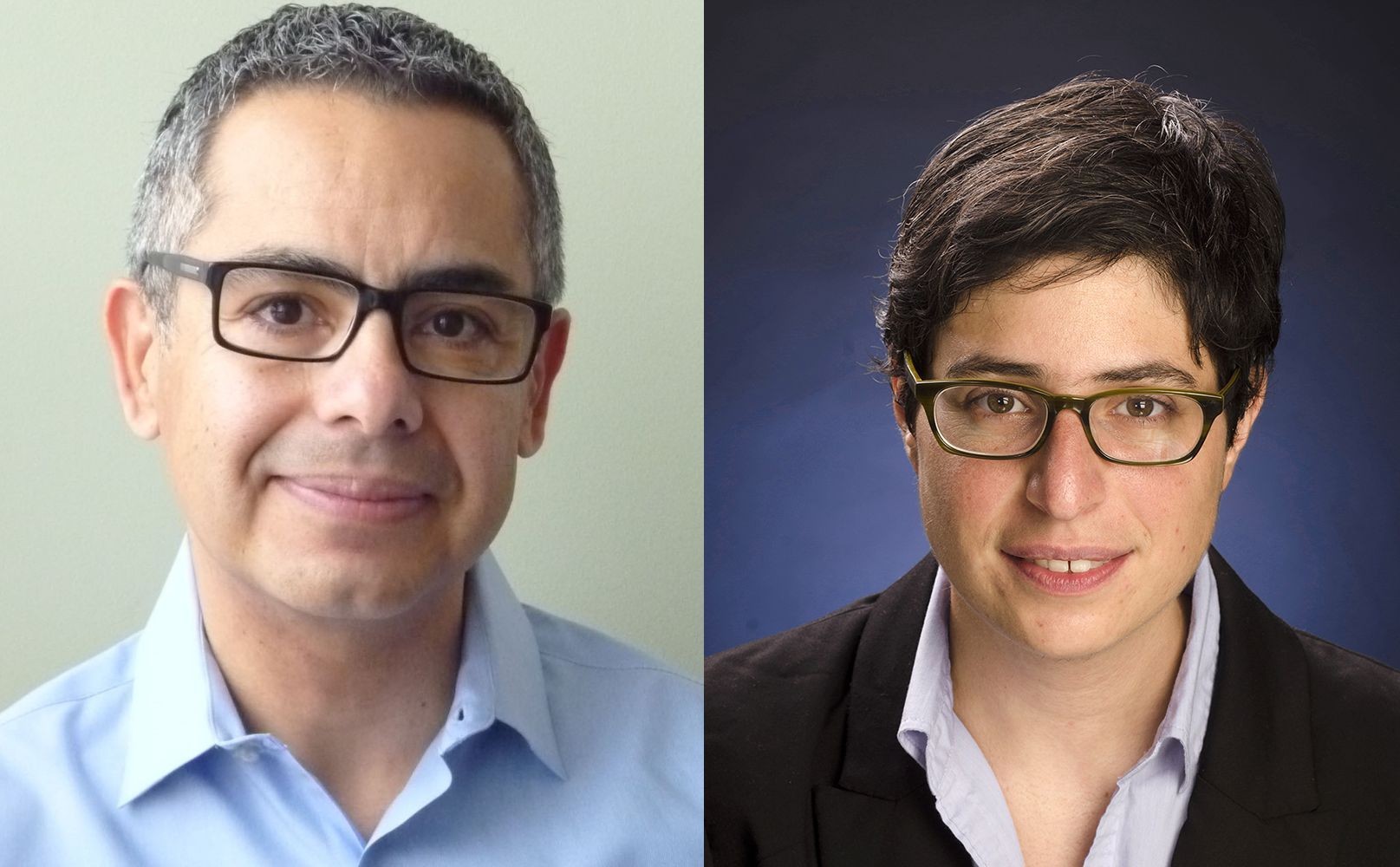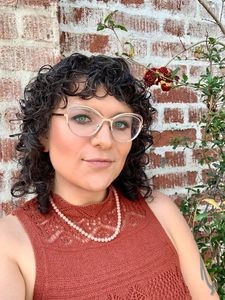QUEER MEXICAN MIGRATION TO THE UNITED STATES, 1965-2000
Drs. Hector Carrillo and Ana Minian
Thursday, Oct. 21, 2021, 5:00–6:30 PM (online via Zoom)

Did being gay prompt Mexican men to migrate to the United States in the second half of the twentieth century? In Pathways of Desire, sociologist Héctor Carrillo argues that in the 1980s and 1990s the desire to escape job discrimination and familial disapproval prompted many gay Mexicans to leave for what they believed would be the greater sexual and cultural freedom of the United States. In Undocumented Lives, historian Ana Minian argues that from the 1960s to 1980s, queer men were less likely to migrate than their straight peers because they believed their jobs and lives (including their sexual lives) were better in their hometowns than they would be in the US. In this conversation, moderated by George Chauncey (Columbia), they will present their major research findings and discuss both the disciplinary differences and late twentieth-century transnational cultural changes in Mexico and the US that may account for their different conclusions.
Héctor Carrillo is Professor of Sociology and Gender & Sexuality Studies at Northwestern University. His past research and teaching have centered on the sociology of sexuality, immigration, and health. His most recent book, Pathways of Desire: The Sexual Migration of Mexican Gay Men (Chicago), received the 2020 ASA Distinguished Scholarly Book Award, the top book award in the field of sociology. He is currently conducting research on the social significance of amateur genealogy.
Ana Minian is an Associate Professor of History at Stanford University who works on questions of Latin American and Caribbean migration. She is the author of Undocumented Lives: The Untold Story of Mexican Migration (Harvard), which won awards from the Organization of American Historians, the Immigration and Ethnic History Society, and other scholarly organizations. She has published articles in the JAH, the AHR, and American Quarterly and is currently writing a book on the history of immigration detention in the United States.
Co-sponsored by the Center for the Study of Race and Ethnicity
EXPERIMENTS IN SKIN: "Resting" History, Intimate Labor, and the Chemical Afterlife of Vietnam
Dr. Thuy Linh Tu
Thursday, Feb. 3, 2022 | 5:00–6:30 PM | 411 Fayerweather Hall

Environmental historians have characterized the Vietnam War as a “chemical war,” fought with chemically-saturated explosives and incendiaries, tear gas and firebombs, herbicides and insecticides. Despite decades of scientific research, legal challenges, and political organizing, the consequences of this broad chemical exposure remain shrouded in a politics of uncertainty. This talk offers an account of how Vietnam's chemical war was recorded on the body’s surface, and how Vietnamese women living with fears of on-going contamination come to labor with war's toxic “afterlife.” Drawn from research at a spa in Saigon, Thuy Linh Tu considers how women speculate about historical conditions that “rest” (nằm nghĩ) in their bodies, and seek remediation for ailments that appear on their skin, in the absence of medical certainty about what ails them, and without expectations for a “clean" environmental future.
Thuy Linh Tu is Professor of American Studies in the Department of Social and Cultural Analysis at New York University and the author, most recently, of Experiments in Skin: Race and Beauty in the Shadows of Vietnam (Duke UP, 2021). Her current research projects include “The Chinese in Indian Land,” an examination of the “insourcing” of textile manufacturing from China to the U.S. South and the resulting contests over race and region, and a collaborative study of debt and incarceration as a member of the NYU Prison Education Program's Research Collective.
PETRO-SEXUALITY: Histories of Oil and Intimacy
Dr. Chelsea Schields
Thursday, Apr. 7, 2022 | 5:00–6:30 PM | 411 Fayerweather Hall

In recent years, energy humanities scholars have highlighted how the ability to do biopolitical work – to discipline the body and regulate populations – has relied on the availability of fossil fuels. The Caribbean has played a vital if also understudied role in the hydrocarbon age, transforming intimate selves and sensibilities in the process. This talk explores the interconnections among the histories of sexuality and the age of oil. Focusing on Aruba and Curaçao, islands that once housed the world’s largest oil refineries, it charts how transnational oil companies introduced peculiar forms of sexual and reproductive regulation intended to maximize oil revenues and discipline Caribbean subjects. Building on extensive archival research in the Caribbean, Europe, and the United States, Schields insists that global energy systems cannot be understood without attention to the sexual and racialized interventions that fueled their emergence.
Chelsea Schields is Assistant Professor of History at the University of California, Irvine. Her scholarship explores the histories of sexuality, race, and the politics of oil and empire in the Caribbean and Europe. With Dagmar Herzog, she is co-editor of The Routledge Companion to Sexuality and Colonialism (2021). Her book, Offshore Attachments: Oil and Intimacy in the Caribbean, is forthcoming with the University of California Press.
This event will be held in person. Open to CUID holders only. No registration required.
HOW TO WRITE A TRANSGENDER HISTORY OF SEXUALITY
Dr. Jules Gill-Peterson
Thursday, Mar. 3, 2022 | 5:00–6:30 PM | 411 Fayerweather Hall

What relationship does transgender history maintain with the history of sexuality? And if history bears no unified trans subject, on what grounds does the trans historian write? This talk considers problems of method through the nagging gender trouble of trans history: the presumptive greater visibility of trans women compared to trans men. Examining transformations in how trans women sex workers in New York City were apprehended by the law over the span of the nineteenth century generates concrete grounds for a transgender history of sexuality.
Jules Gill-Peterson is Associate Professor of History at Johns Hopkins University. She earned her PhD from Rutgers University and has held fellowships from the American Council of Learned Societies and the Kinsey Institute. She was honored with the Chancellor’s Distinguished Research Award from the University of Pittsburgh in 2020.
Jules is the author of Histories of the Transgender Child (University of Minnesota Press, 2018), the first book to shatter the widespread myth that transgender children are a brand new generation in the twenty-first century. Uncovering a surprising archive dating from the 1920s through 1970s, Histories of the Transgender Child shows how the concept of gender relies on the medicalization of children's presumed racial plasticity, challenging the very terms of how we talk about today's medical model. The book was awarded a Lambda Literary Award for Transgender Nonfiction and the Children’s Literature Association Book Award.
Jules has also written for The New York Times, CNN, The Lily (by The Washington Post), Jewish Currents, The New Inquiry, The Funambulist, and more. She has been interviewed extensively in The Guardian, CBS, NPR, and Xtra Magazine. She also serves as a General Co-Editor at TSQ: Transgender Studies Quarterly.
This event will be held in person. Open to CUID holders only. No registration required.